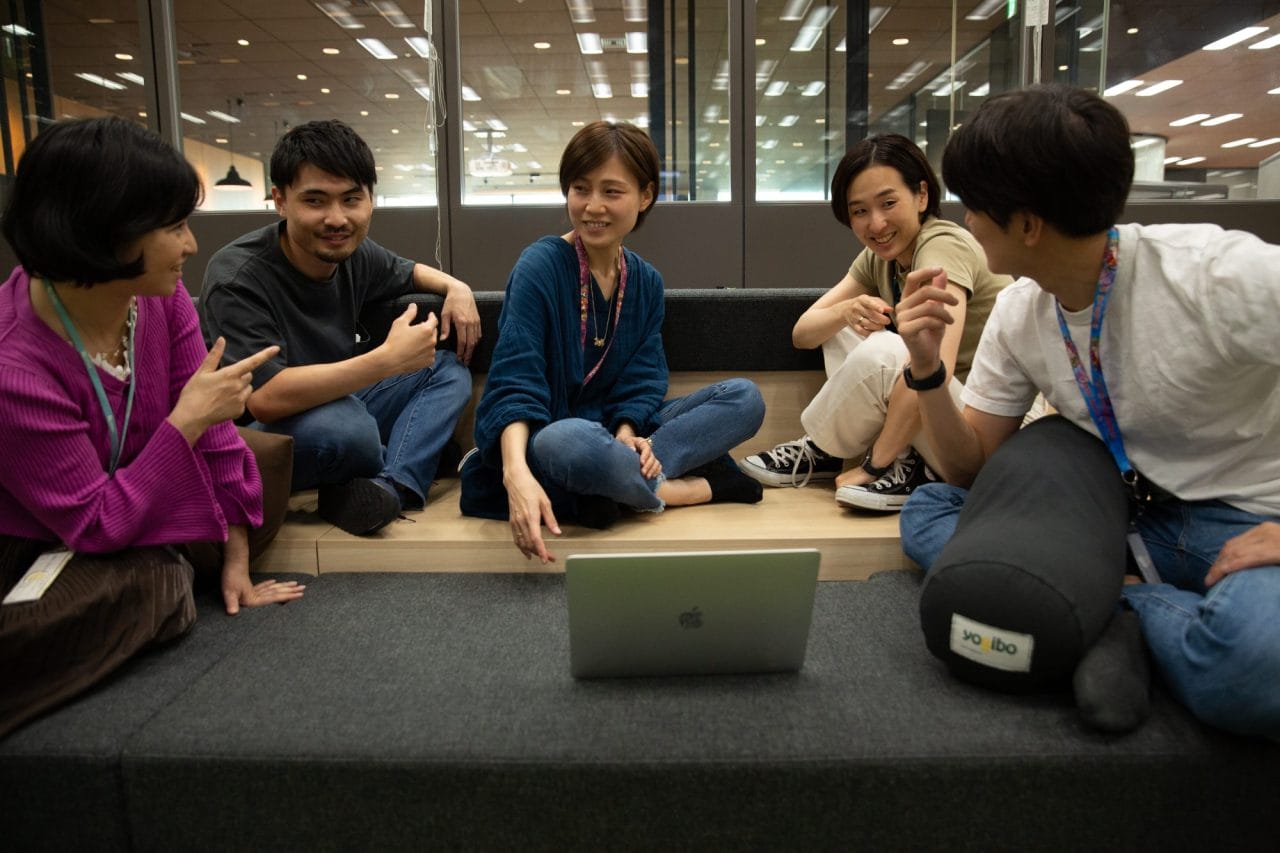Hustle culture, once revered for its promise of success at any cost, has revealed its darker side – burnout, stress, and diminishing well-being.
In an exclusive interview with BusinessToday, Kintone Southeast Asia, a subsidiary of Cybozu, CEO, Tsubasa Nakazawa (pic) said that hustle culture is characterised by relentless hard work and long hours, often at the expense of work-life balance.
“Hustle culture prioritises short-term success over long-term career development, which has taken its toll on the health and well-being of employees around the world.
According to Milieu Insight’s 2022 Hustle Culture study, 50% of employees in Singapore, Indonesia and the Philippines reported frequent burnout from work at least a few times a month.
Specifically, more than half of Singapore’s workforce claimed a poor quality of life, while 30% suffered from lack of sleep,” Nakazawa said.
However, a countertrend has emerged – ‘quiet quitting’ and ‘Lazy Girl Jobs’ – where employees scale back their efforts in response to the relentless demands of hustle culture.
“I recently learned that ‘Lazy Girl Jobs’ is a similar trend that originated on TikTok, advocating for roles with decent pay and high flexibility, but that don’t require much effort and are relatively stress-free.” he added.
Amidst these shifting tides, Cybozu stands to make a change. Founded in 1997 and is now Japan’s leading groupware provider, this company continue to offer their team-driven software and work method to more and more teams worldwide.
As they won numerous awards for their commitment to creating an amazing work environment, including being repeatedly featured as one of Japan’s top 3 best workplaces according to workplace assessment firm Great Place to Work®. They also rank consistently among the best workplaces for women and young employees.
“Leaders should strive to understand the reasons underlying these trends, and not fall into the perennial trap of calling the next generation ‘lazy’. For instance, Gen Z workers are prioritising job satisfaction and personal fulfilment over long hours and short-term gains.
Trends like ‘quiet quitting’ or ‘Lazy Girl Jobs’ are products of their desire for better work-life balance, more meaningful work, and the rejection of unreasonable workloads.
Embracing open communication and feedback is the only way to understand the values of your employees. Show them trust and respect, and they will feel a greater sense of purpose and pride in their work. There are no other sustainable paths to productivity and engagement,” he said.
Nakazawa revealed the company’s commitment to prioritising output over hours worked, promoting teamwork over individual achievement, and fostering a culture of open communication.
This approach, Nakazawa said, is supported by Cybozu’s digital workplace platform, Kintone, which empowers employees to collaborate seamlessly and customise their work schedules.
The Trigger of Hustle Culture
The proliferation of technology, particularly smartphones and seamless network connectivity, has significantly contributed to the rise of hustle culture in modern workplaces.
With the ability to be constantly connected, employees find themselves immersed in a work environment that knows no boundaries between office hours and personal time.
“Technology like smartphones, 4G/5G and seamless network connectivity, are blurring the lines between work and personal life.
It’s now possible for employees to be ‘always on’, constantly available, which in many workplaces has led to higher expectations and longer working hours.” Nakazawa said.
Despite that, Nakazawa did not deny the fact that technology can play a pivotal role in both stress reduction and productivity.
Through the implementation of smart tools and platforms, technology can streamline workflows, automate routine tasks, and facilitate better communication.
“When used properly, business software can free up time for employees to focus on the most fulfilling aspects of their work.
The expectation to always be available and responsive has led to an increase in working hours and a blurring of work-life balance, ultimately taking a toll on mental well-being,” he added.
Additionally, Nakazawa emphasised on the prevalence of social media platforms exacerbates the pressure to succeed and maintain a certain image of success.
Constant exposure to curated portrayals of others’ achievements fosters a fear of missing out (FOMO) and a sense of inadequacy among individuals striving to keep pace with their peers.
Influencers and societal norms often perpetuate the notion that success is directly correlated with the amount of effort and sacrifice put into work, leading many to equate long hours with dedication and productivity.
As a result, individuals may feel compelled to prioritise work over their well-being, perpetuating a cycle of stress and burnout in pursuit of professional success.
Effect of Reduced Working Hours
As companies adopt reduced working days and flexible hours, the workplace landscape is evolving.
This shift offers benefits like improved employee well-being and job satisfaction, thanks to enhanced work/life balance and personalised schedules.
However, challenges such as feelings of isolation and communication barriers may arise. “Employees asked to define their workstyle without any guidance risk feeling isolated or alienated from the rest of the company.
Poor internal communication systems can create inefficiencies among remote employees, causing a drop in productivity and employee engagement,” Nakazawa said.
To navigate these changes successfully, companies must prioritise open communication and invest in digital tools to foster collaboration and maintain a cohesive company culture.
“Companies need to acknowledge these risks when implementing flexible work strategies, and put in place adequate countermeasures. Micromanagement and employee surveillance don’t work, as they defeat the purpose of having flexible workstyles in the first place.
Instead, companies should strive to implement a company culture of open communication, supported by digital workplace tools that allow for efficient and widespread information sharing,” he added.
How Employers Can Help in Achieving Work-life-balance
“A healthy work-life balance is the best way to ensure high levels of employee engagement, high retention, and sustainable long-term productivity,” Nakazawa said.
Employers have to believe their employees are smart people who come to work wanting to do a good job. “After all, that’s why they were hired in the first place. The employer’s role isn’t to squeeze every last drop of productivity out of their employees.
It’s to create an environment in which employees are motivated and able to do their best work,” he added.
Additionally, in order to strike a balance between fostering productivity and ensuring employees’ work-life balance, Nakazawa said that it is necessary to remove any barriers that might prevent people from doing their best work. “Make sure information is open and available to all those who need it, so employees don’t waste time asking and waiting.
Make approval processes clear and logical, so as to reduce stress and misunderstandings. Let your employees choose their own workstyle, then evaluate them based on the product of their choices.
Show by example that it’s OK to speak up when you think something isn’t right, that individual opinions matter, and that taking initiative is rewarded, not punished,” he further added.
Nakazawa also emphasised the necessity of providing the employees with the digital tools that they need.
Cybozu’s Ways in Combating the Negative Effects of Hustle Culture
The company combats hustle culture’s negative effects by focusing on output rather than overtime for promotions and salaries.
Team-based bonuses encourage collaboration over individualism.
Employees have autonomy to set their schedules and work environments, fostering work-life balance.
Additionally, Cybozu’s digital platform, Kintone, supports transparent communication and scheduling.
This approach prioritises employee well-being while promoting productivity. “All of these policies are further supported by our digital workplace platform Kintone, which our team members use to communicate, share information, register leave applications, set their work schedules, and so on.
At Cybozu, we believe that as long as we maintain a transparent culture of open and honest communication, we can trust employees to decide for themselves how they can do their best work.” Nakazawa said.










